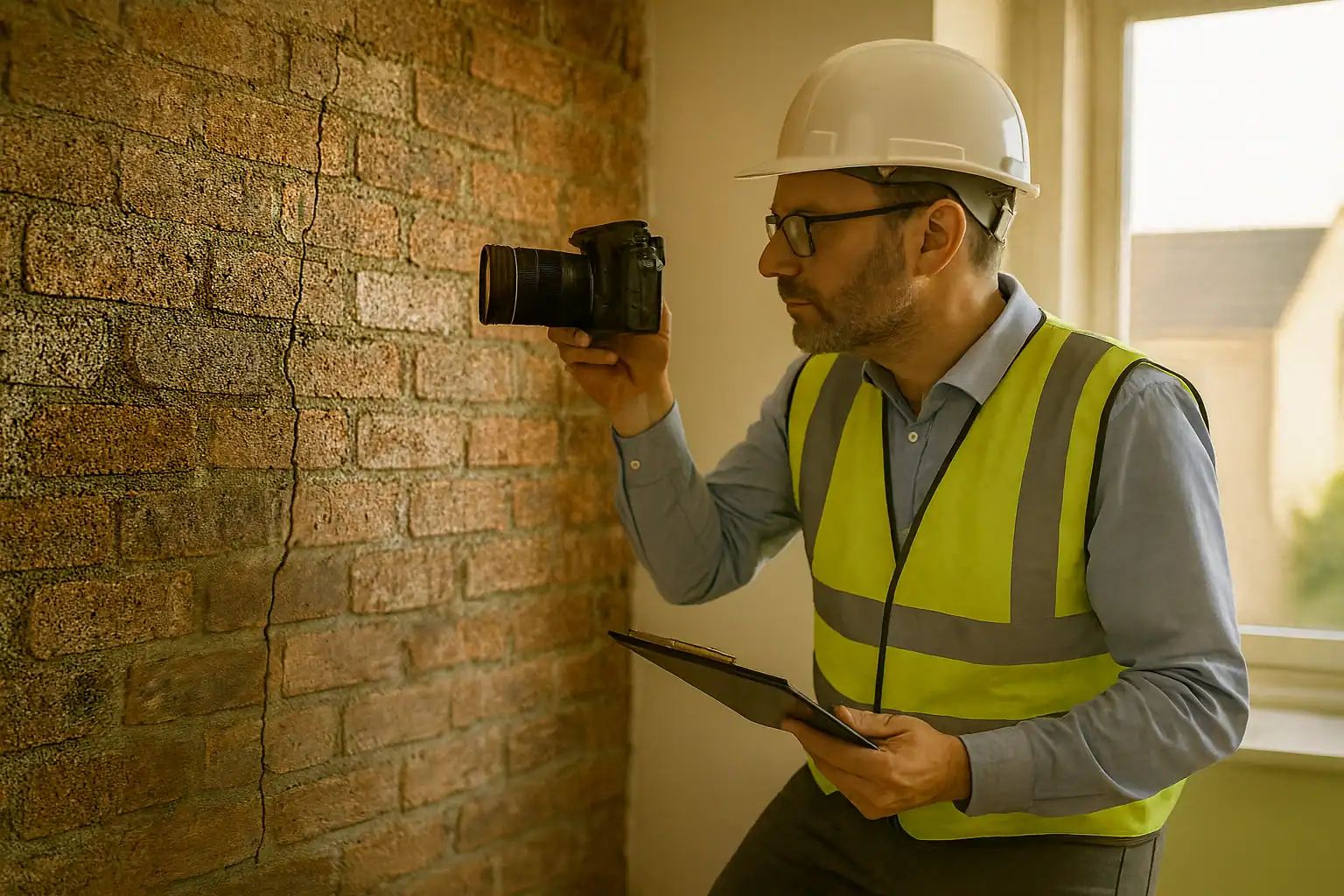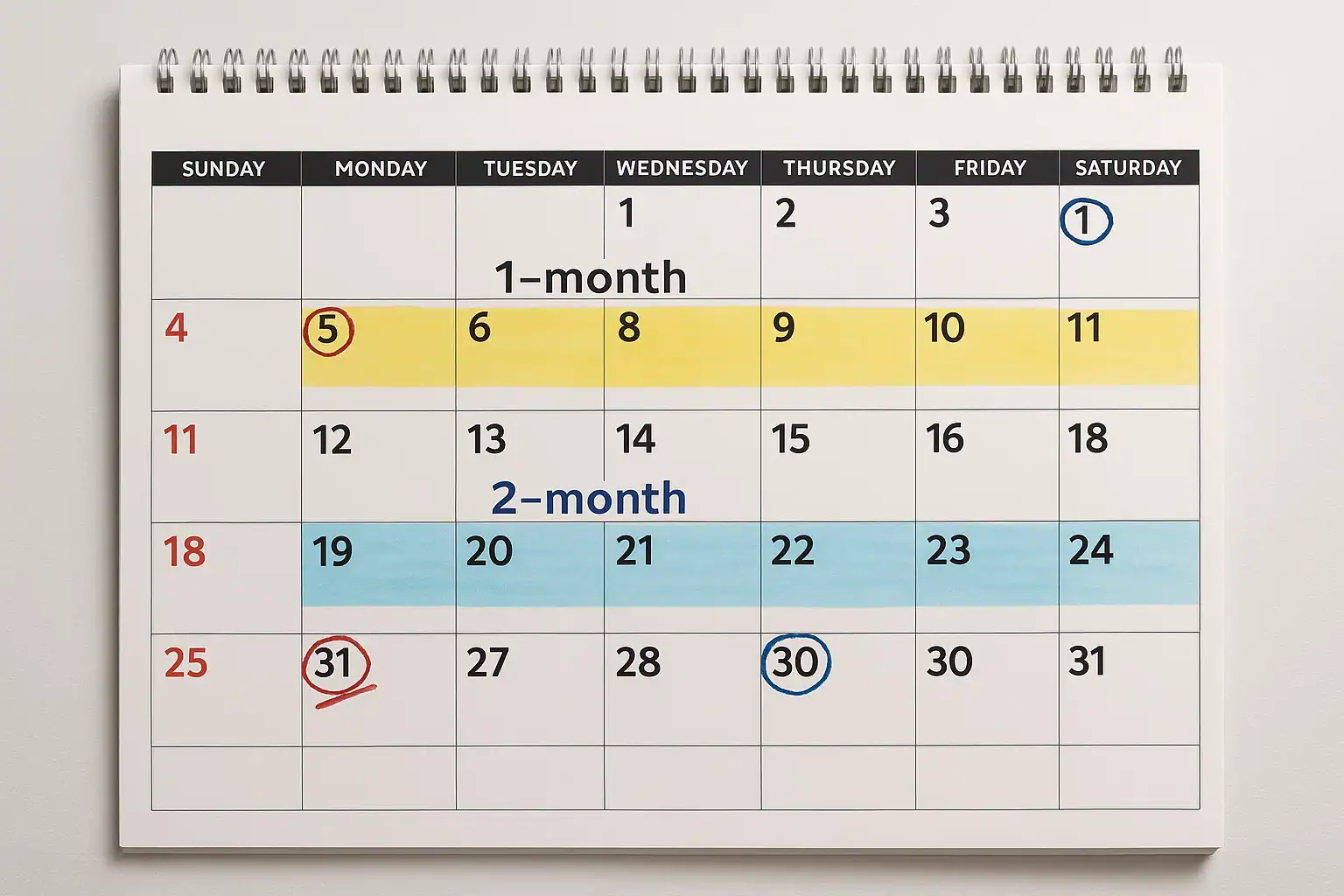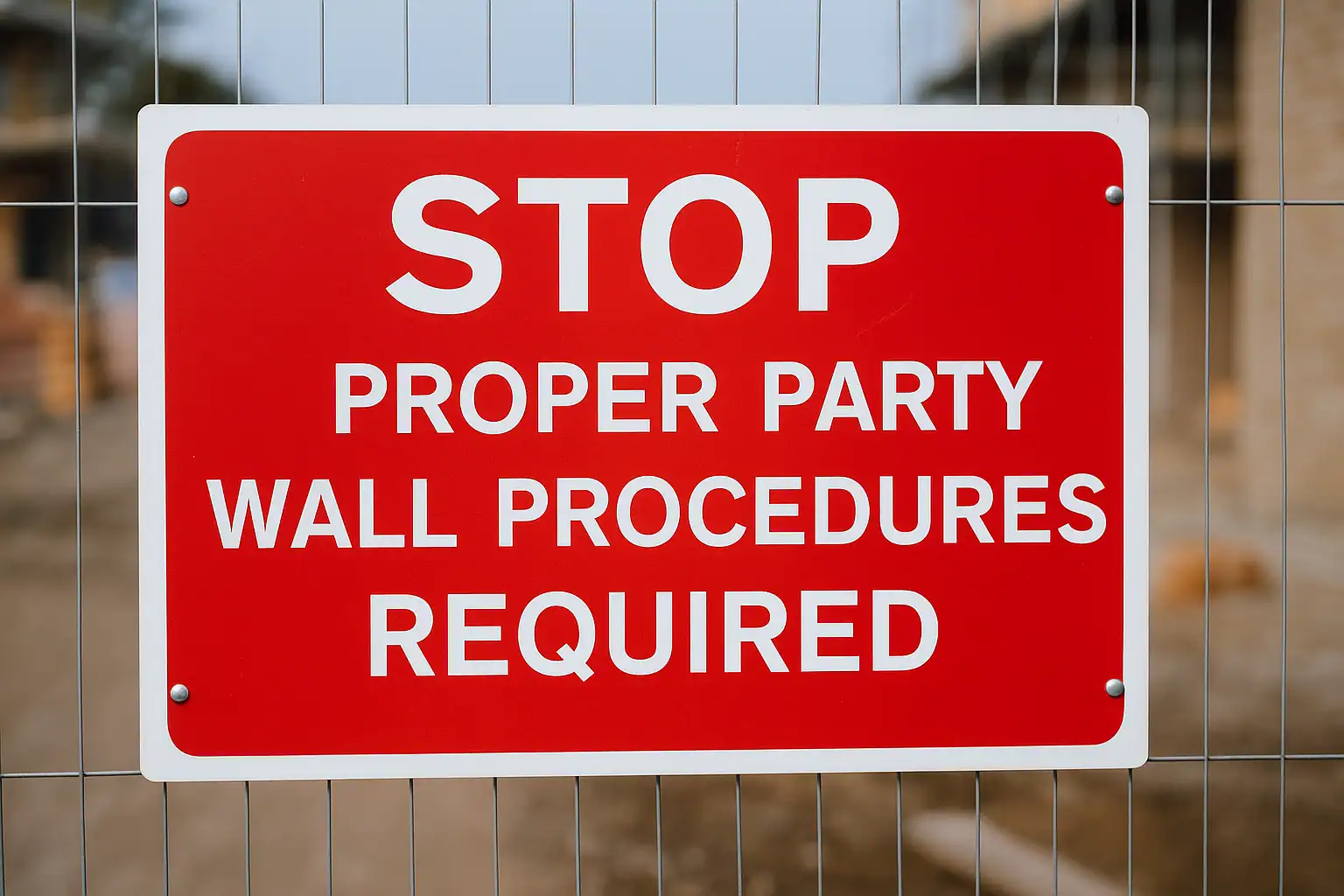When You Need a Party Wall Surveyor
Most work on party walls or boundaries requires professional help. You need a party wall surveyor for:
- Building work on the existing party wall or boundary structures.
- Excavation within 3 m of your property.
- Changes to shared walls.
- Any work affecting foundations or the party structure.
- Early advice ensures you understand requirements before work begins.
Understanding Party Wall Agreements and the Party Wall Act
A party wall agreement protects both owners during building work, maintains good neighbour relations and follows legal procedures.
Party wall agreements typically cover:
- Description of the work.
- Approved methods.
- Working hours.
- Procedures to safeguard both parties.
What Does a Party Wall Surveyor Do?
A qualified surveyor handles legal aspects under the Act. Key responsibilities:
- Serve notice to your neighbour within 14 days.
- Prepare agreements to safeguard both parties.
- Monitor work for compliance.
- Resolve disputes if they arise.
Whether using a single agreed surveyor or two appointed surveyors, they act as your representative. They inspect existing walls, photograph conditions, and document defects. RICS and FPWS members follow strict standards, protecting homeowners from future claims.
How to Serve Notice for Building Work
You must serve a formal party wall notice under the Party Wall etc. Act 1996 before starting any work. The required notice period depends on the type of construction:
- Work on the boundary – minimum 1 month.
- Excavation within 3 m of a neighbour’s structure – 1 month.
- Alterations to a shared wall or party structure – 2 months.
In practice, party wall procedures can take time — especially if neighbours request their own surveyor. It’s advisable to serve notice at least 2–3 months before your planned start date to avoid delays.
If your neighbour does not respond within 14 days, a dispute is deemed to have arisen, and you must appoint a party wall surveyor. Either a single agreed surveyor or two appointed surveyors will then act to resolve matters formally.
When You Need a Party Wall Agreement and Require a Party Wall
You need a party wall agreement for:
- New walls on the boundary.
- Excavation within 3 m affecting a shared wall.
- Changes to party walls.
- Work affecting foundations or the party structure.
- Professional help ensures compliance before work begins.
Party Wall Awards
A party wall award is a legally binding document issued when disputes arise. It typically includes:
- Permitted work details and timelines.
- Condition surveys.
- Access rights.
- Compensation arrangements.
- Procedures for resolving disputes.
Once issued, both parties must comply.
How to Appoint a Party Wall Surveyor
When appointing, check:
- RICS or FPWS membership.
- Experience with similar projects.
- Fee quotes.
- Local expertise.
- Track record resolving disputes.
You can use a single agreed surveyor or separate surveyors. The surveyor acts on your behalf during the process.
Understanding Boundary Lines and Properties That Adjoin
Adjoining properties have legal protection under the Act. Any work affecting the boundary or shared structures requires notification. The Act protects both parties and sets procedures for shared structures.
Benefits of Hiring a Party Wall Surveyor
- Legal compliance: Ensures adherence to the Act.
- Dispute prevention: Identifies issues early and avoids neighbour conflicts.
- Time savings: Keeps work on schedule.
- Cost control: Prevents expensive disputes.
- Neighbour relations: Acts diplomatically.
- Documentation: Protects against unfounded claims.
Cost Breakdown
| Service | Price | What You Get |
|---|---|---|
| Basic Notice | £800–£1,500 | Notice preparation for party wall works |
| Single Agreed Surveyor | £1,500–£3,000 | Agreement with one surveyor |
| Two Surveyors | £3,000–£6,000 | Full representation with appointed surveyors |
| Awards | £2,000–£4,000 | Formal party wall award determination |
Most homeowners invest £2,000–£3,500 in qualified help, which can save thousands by preventing disputes.
Resolving Disputes with Neighbours
Disagreements occur when parties can’t agree on work. Common issues:
- Disagreement about methods.
- Concerns about damage.
- Access during works.
- Noise or damage claims.
Resolution steps:
- Discussions between surveyors.
- Technical assessment.
- Single surveyor involvement if required.
- Formal awards with binding decisions.
Significant Building Work and the Party Wall Act
Major works trigger legal requirements. Examples:
- Loft conversions affecting party walls.
- Basement excavations near boundaries.
- Extensions affecting shared walls.
- Structural removals or foundation work within 3 m of a neighbour.
Even small modifications can trigger the Act. A surveyor advises before work begins.
Legal Obligations Under the Party Wall Act
The Party Wall etc. Act 1996 sets mandatory procedures for building work. Your responsibilities as a building owner include:
- Serving notice on time.
- Allowing 14 days for neighbour replies.
- Appointing a surveyor if disputes arise.
- Following agreed procedures.
- Obtaining formal documentation when required.
Ignoring the Act can result in court injunctions halting your project.
Common Questions
Should I Hire a Party Wall Surveyor if My Neighbour is Doing Building Work?
Yes. If their work involves excavation within 3 m or affects a shared wall or boundary, they must serve notice. You can appoint your own surveyor for protection. A separate surveyor ensures fair treatment and resolves disputes professionally. If your neighbour doesn’t respond within 14 days, appoint a surveyor immediately. The dispute resolution process begins automatically.
What Are Notice Period Requirements When You Serve Notice?
- Two-month notices are required for:
- Alterations to existing party walls or boundary structures.
- New structures on the boundary line.
- Structural modifications to shared walls
- One-month notices are required for:
- Excavation within 3 m.
- Foundation works near the boundary.
- Basement construction affecting shared structures.
Count calendar days. If your neighbour doesn’t respond within 14 days, the dispute process starts.
Which Building Work Doesn’t Need a Party Wall Agreement?
Typically exempt:
- Internal renovations not affecting shared walls.
- Permitted development more than 3 m from the boundary.
- Surface repairs.
- Maintenance without structural changes.
- Landscaping away from boundaries.
Many homeowners wrongly assume their work is exempt. When unsure, get advice early to avoid problems.
Common Misconceptions About the Party Wall Act
Misconception: Neighbour Consent Means You Don’t Need to Serve Notice
Common Party wall misconceptions are Consent does not remove legal obligations. You must still serve notice even with written or verbal consent. Neighbours can choose not to appoint a surveyor, but notice is still required. The correct procedure is to:
- Serve notice.
- Allow the required period.
- Neighbour either consents or appoints a surveyor.
- Agree on methods and proceed legally.
Misconception: Neighbours Can Block Foundation Building Work
Neighbours cannot block legitimate works. The Act grants rights for work on boundaries. They can request fair compensation via their own professional. If parties can’t agree, surveyors issue a binding award. The surveyor resolves disputes and protects both owners.
Misconception: No Response Means Permission to Start Work
Silence is not consent. If your neighbour does not reply, you must appoint a surveyor. They can appoint their own or agree to a single surveyor. Formal documentation must be issued before work begins. Never assume silence allows you to proceed without following legal procedures. Surveyors protect both parties and resolve issues fairly.
Final Recommendations
Hiring a party wall surveyor gives essential protection for building work affecting shared walls or boundaries. Qualified professionals ensure compliance with the Act, prevent disputes, and maintain neighbour relations. The investment often pays for itself through avoided problems.
Whether you use one agreed surveyor or two appointed surveyors, they guide you through legal requirements and handle the process. Understanding fees upfront avoids surprises. Surveyors make sure notices are served correctly and awards are issued fairly to protect both parties.
Get advice before starting work on shared walls, boundaries, or structures. Early appointment prevents issues and safeguards relationships.
Key takeaway: A party wall is a shared wall. The Party Wall etc. Act 1996 applies to building work that may affect a neighbour’s property or shared structure. Understanding when you need a party wall agreement protects your interests as a homeowner.
Professional surveyors ensure projects comply with regulations from start to finish. By serving notice properly and appointing surveyors when needed, you maintain good neighbour relations and keep projects on track.
The Act applies to any work adjoining a neighbour’s property or affecting shared structures. Qualified surveyors explain costs upfront and act on your behalf. RICS and FPWS professionals resolve disputes efficiently and help complete work legally and smoothly.
Get our comprehensive guide explaining the Party Wall Act, your rights and obligations, notice requirements, and what to expect from the surveyor process.
Download the free guide →








